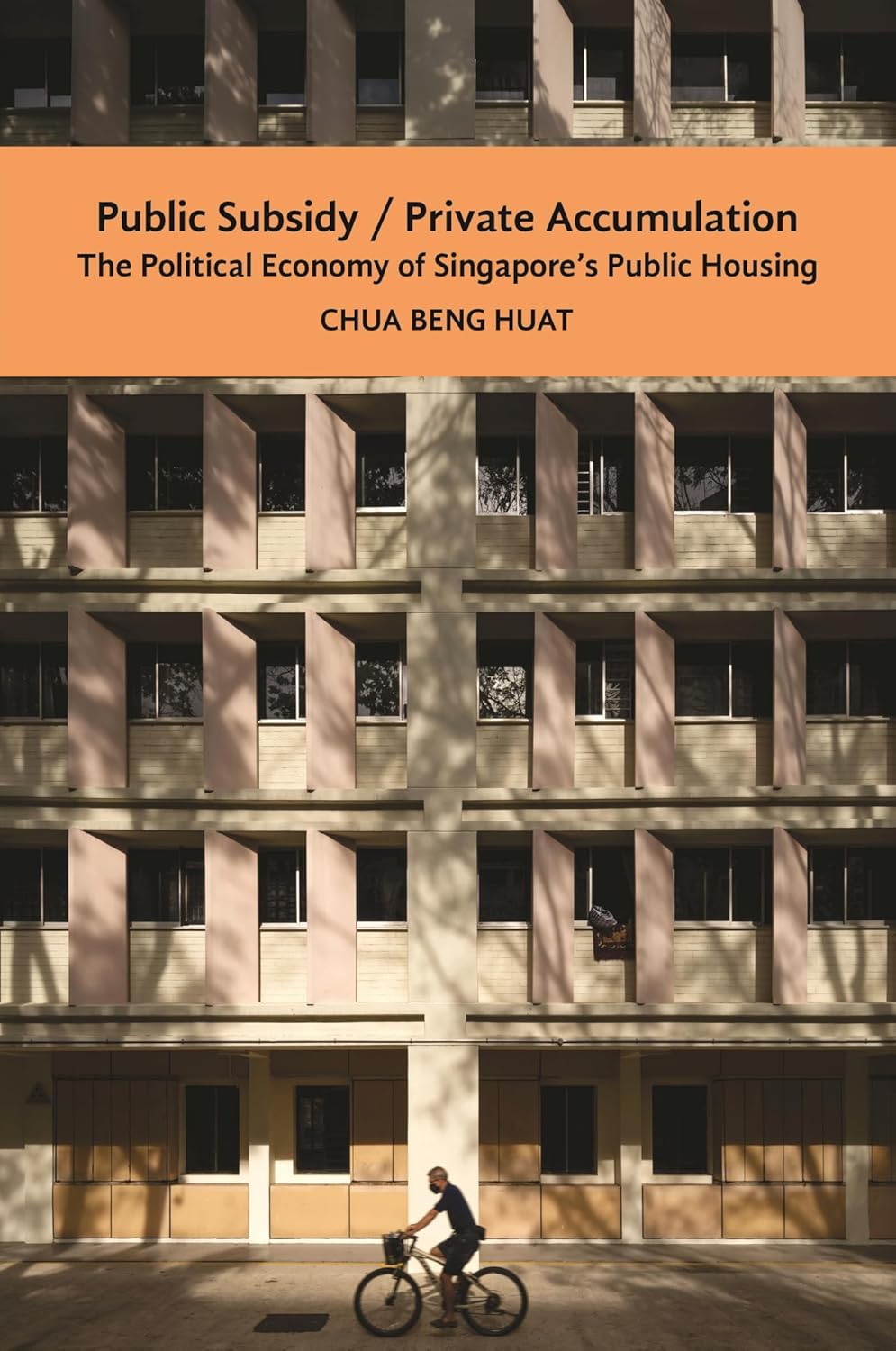Books

Public Subsidy, Private Accumulation: The Political Economy of Singapore’s Public Housing
| Author | : | CHUA Beng Huat |
| Publication Date | : | Mar / 2024 |
| Publisher | : | NUS Press |
Download | ||
The achievement of Singapore’s national public housing program is impressive by any standard. Within a year of its first election victory in 1959, the People’s Action Party began to deliver on its promises in dramatic fashion. By the 1980s, 85 percent of the population had been rehoused in modern flats, and today, decades later, the provision of public housing shapes Singapore’s environment. The standard accounts of this remarkable transformation leave many questions unanswered, from the historical to urgent matters of current policy: Why, of all the pressing demands of Singapore’s newly enfranchised citizens, was housing such a priority back in the 1960s? How did the provision of social welfare via public housing shape Singapore’s industrialisation and development over the last 50 years? Looking ahead, can the HDB continue to be a source of affordable housing for young families, while long-standing appreciation in flat prices provides for the retirement of their parents? How can this be managed as 99-year leases on flats run down? When young people from wealthy families purchase subsidised flats and then resell them for a profit as soon as they can, what does that do for the already pressing issues of inequality in Singapore?
This is a culmination of Chua Beng Huat’s study of Singapore’s public housing system, its dynamics, and the ways it functions in Singapore’s politics. Does every great success hold within it the seeds of failure? The book will be of interest to citizens, and scholars of the political economy of Asian development, of social welfare provision, and of Singapore.

